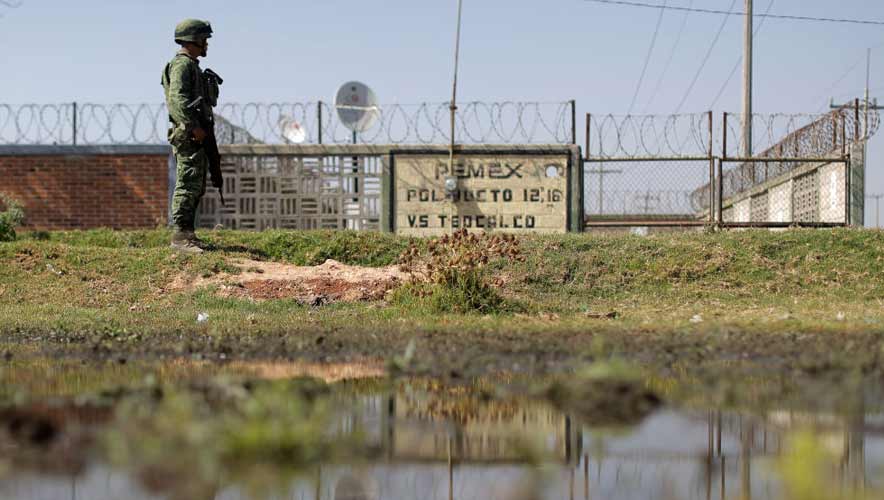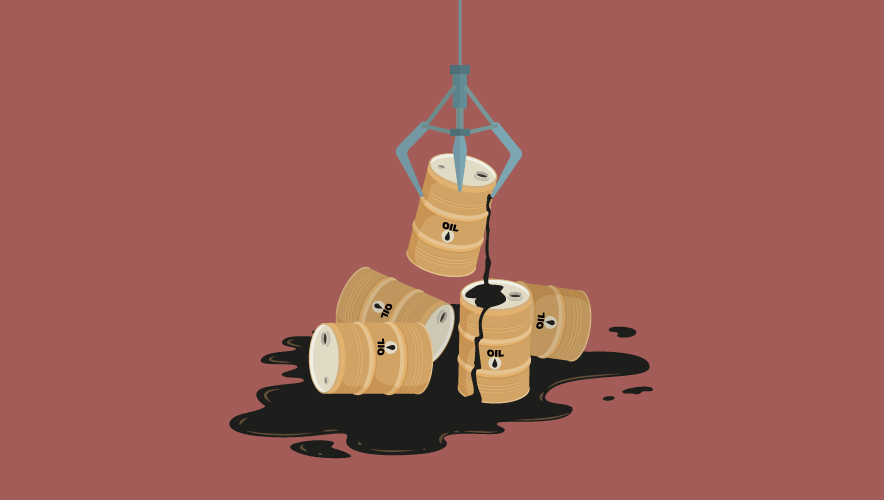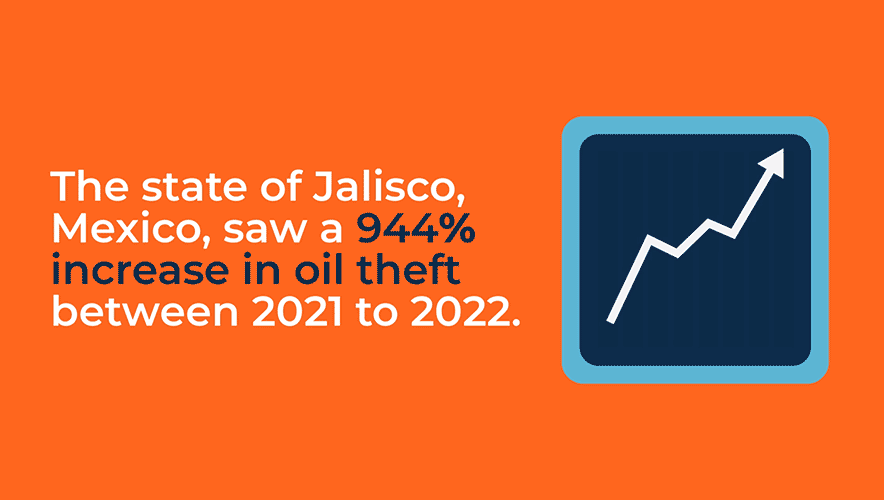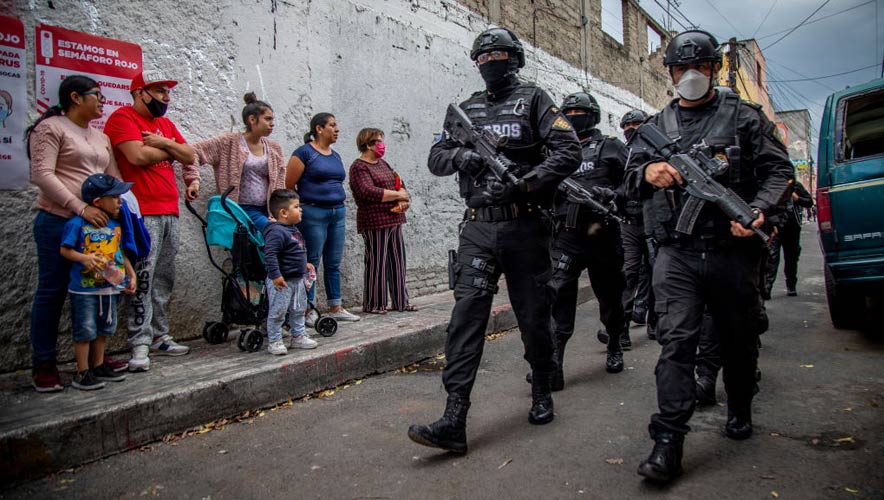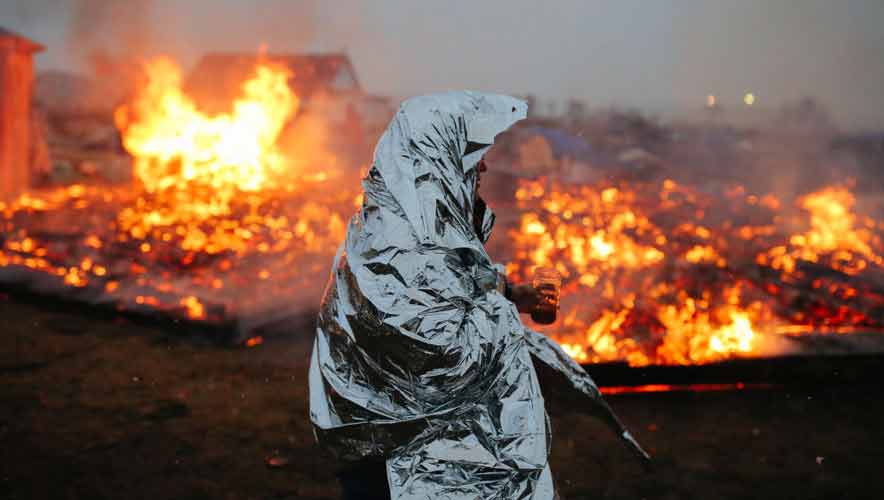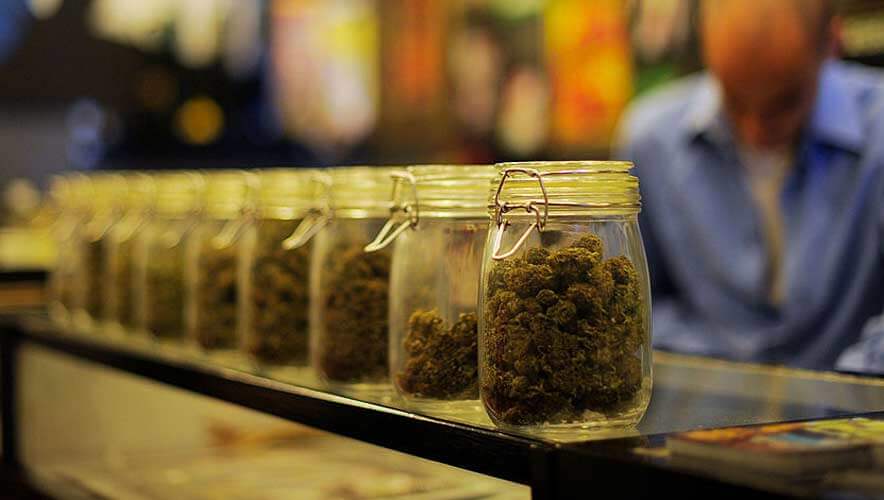Petroleum Jargon: 9 Terms from Mexican Fuel Theft Trends
Fuel theft can be a specialized crime, especially when organized crime groups and cartels are involved. To help clear up any confusion, here’s your guide to nine key terms and concepts related to current fuel thefts in Mexico.
- Criminal cartel. A criminal organization that has diversified its criminal activities.
- Drug cartel. A criminal organization that largely focuses on activities involving illicit substances. Two examples of drug cartels operating in Mexico are:
-
- Gulf Cartel. Dating back to the 1930s, this group initially smuggled alcohol and heroin into the United States. It diversified its illicit product line in the 1980s and began to traffic cocaine, marijuana, and methamphetamines.
- Sinaloa Cartel. In the 1960s, this organization emerged as one of the front-runners in large-scale drug trafficking of marijuana into the United States, and later branched into cocaine, marijuana, methamphetamines, and opioids.
- Gray market. When the legality of supplies or items being sold are not immediately evident. The goods appear to be offered legally and often at a discount—as long as the buyer doesn’t ask too many questions. In Mexico, a fuel thief might offer a buyer—for example, a gas station operator—a significant discount of a shipment of gasoline. Packaged in a fuel truck instead of a couple of gas canisters, the sale has the veneer of being aboveboard, and sellers might not ask whether the fuel was stolen from a pipeline.
- Hot tapping. How thieves, or “huachicoleros,” steal fuel—whether it is gasoline, an oil product, or other kind of gas product—directly from a pipeline, usually by using a valve installed unofficially or without knowledge from pipeline operators.
- Huachicolero. This term originally referred to someone who would steal from a nearby oil or fuel pipeline in Mexico. In decades past, local thieves would tap into a pipeline and later sell or give the stolen fuel to neighbors or other members of his or her community. As criminal cartels in Mexico diversify their business models, they have branched out into this type of crime.
- Liquefied natural gas (LNG). Natural gas that has been cooled from its gas state to a liquid one so that it can be easily stored and transported.
- Midstream sector. The portion of the fuel industry largely concerned with the transportation of fuel from where it is extracted to where it is refined. This often includes pipelines and compressor stations.
- Mexican War on Drugs. The Mexican government’s military and legislative response to the growing influence of cartels (i.e., corruption, violence). The response officially began in 2006 under President Felipe Calderón, until the current president, Andrés Manuel López Obrador announced that the war had ended in January 2019. López Obrador said his administration would instead focus on reducing spending and eliminating fuel thefts.
- Pemex. A nickname or portmanteau for Petróleos Mexicanos, Mexico’s state-owned petroleum company. It was Latin America’s fourth-most profitable entity in 2021. Founded in 1938 when Mexico nationalized all private oil companies operating in the nation, its operations run the length of the hydrocarbon industry—exploration, extraction, production, transportation, storage, and refinement and processing oil and gas products, including operations as a significant exporter of crude oil.
For more about how cartels are turning their focus toward fuel theft and other valuable resources, read additional Security Management coverage here.
Sara Mosqueda is associate editor for Security Management. Connect with her on Twitter @ximenawrites or on LinkedIn.
